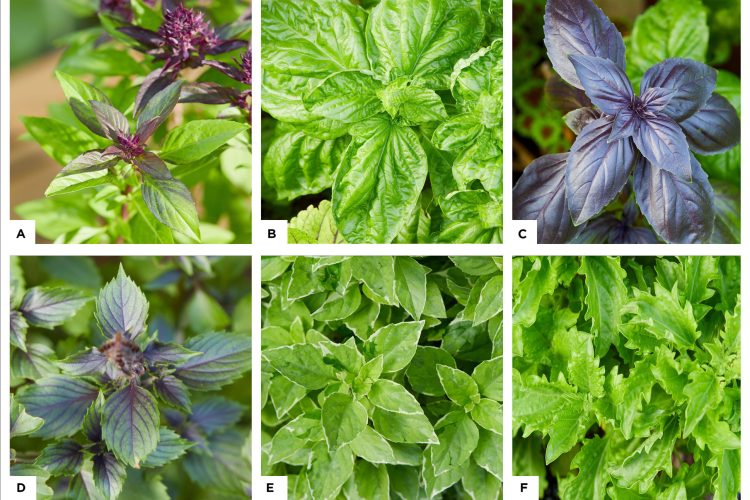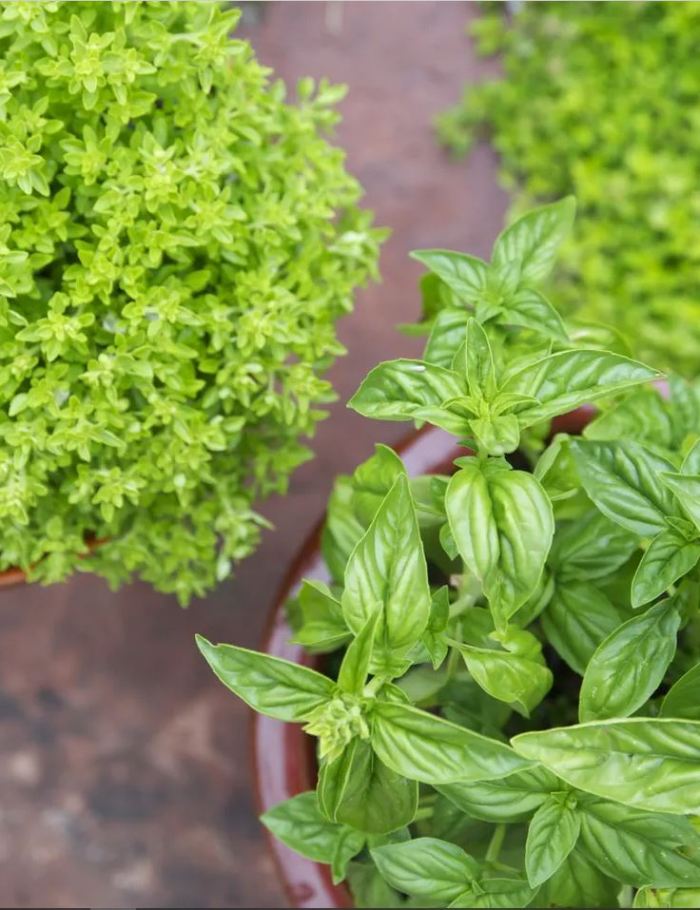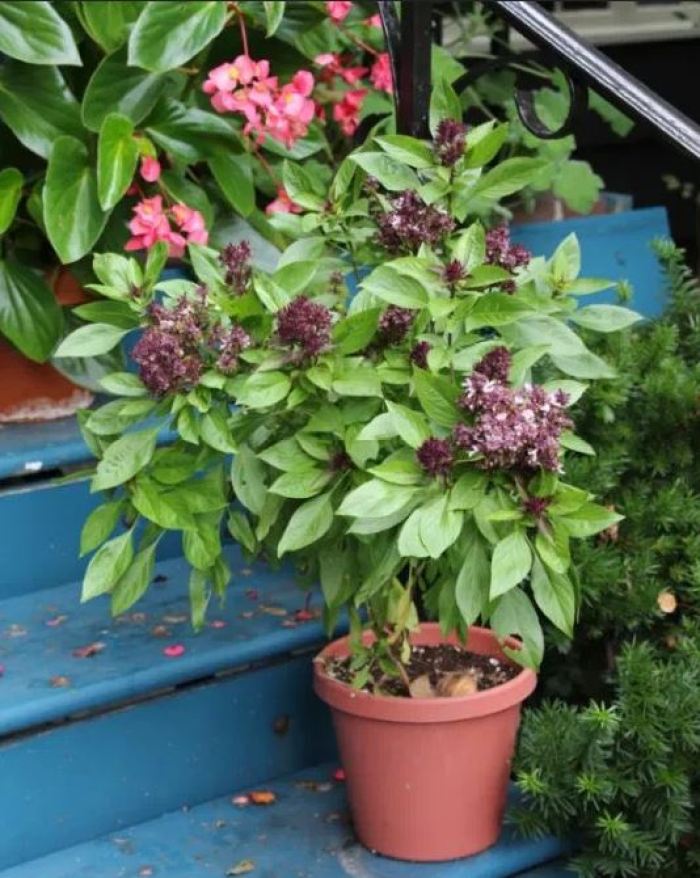Basil: a wonderful plant with a fantastic aroma and beneficial properties in your pot and garden
Basil is one of the most popular and favorite aromatic plants we use in Mediterranean cuisine. In every yard and balcony of Greek houses, we will find a basil planted in a pot planted to give off its special aroma. It is a fact that the cultivation of basil has its peculiarities, so if in the past we had some basil that has dried up, we do not need to be disappointed. It’s time to reveal the secrets of its care to enjoy the unique aroma and special taste of fresh basil leaves in our kitchen.
Jasmine Sambac, the Arabic jasmine with the wonderful aroma in your garden

We plant the basil in semi-shady places protected from strong winds to have good growth and rich green foliage. Especially during the winter, basil needs protection from frost, snow, and northerly winds. Basil thrives in bright places, but is sensitive to long hours of direct sun exposure. Strong summer sunlight can cause burns on basil leaves. If we plant the basil in a pot on our balcony, we prefer a place with a western or eastern exhibition.
 For the cultivation of basil on the balcony, we choose a round pot with a size of 1-2 numbers larger than the pot we bought from the nursery. If we choose the perennial (Mount Athos) basil, we must keep in mind that it grows quickly and will need more frequent transplants. We supply general purpose or special aromatic plant soil to plant our basil. We prefer plant soil rich in nutrients that contain perlite for good drainage.
For the cultivation of basil on the balcony, we choose a round pot with a size of 1-2 numbers larger than the pot we bought from the nursery. If we choose the perennial (Mount Athos) basil, we must keep in mind that it grows quickly and will need more frequent transplants. We supply general purpose or special aromatic plant soil to plant our basil. We prefer plant soil rich in nutrients that contain perlite for good drainage.
The planting of basil can be done directly with seed, as well as with ready-made basil plants we grow in a bed or we get from nurseries. For basil sowing, we plant a few seeds directly in the garden soil or in the pot, about a centimeter deep in early spring, and wait 1-2 weeks for it to germinate. The best time to sow basil outdoors is in early March. If we make basil plants in a bed or procure ready-made plants from nurseries, the best time for transplanting is April-May. When transplanting ready-made basil plants, we add a solution of algae extract that we will procure to have a better development of the root system of the plants.
How often does the basil need watering?
Watering basil is perhaps the most important crop to be able to grow and thrive. We often water the basil, every 2-3 days, in small quantities, while on hot summer days on a daily basis. It is necessary to check the soil with our finger before watering and repeat the watering of the basil only when its soil has dried. Many royals dry out, showing yellowing on the leaves and rot on the roots caused by excessive watering.
How is the basil pruned and propagated?
Regarding pruning the basil, we often prune it, cutting a few leaves from the tops of its shoots, to keep its  shape compact. It is important to remove the basil flowers as soon as they are formed in the summer, to ensure an extension of its longevity to avoid weakening the plant. The basil is propagated very easily both by seed and by cuttings. We can create new basil plants by cutting a small branch 10 cm long, and after placing it in water, we leave it in a cool bright place. After 2-3 weeks, after it has taken root, we can transplant it into a pot.
shape compact. It is important to remove the basil flowers as soon as they are formed in the summer, to ensure an extension of its longevity to avoid weakening the plant. The basil is propagated very easily both by seed and by cuttings. We can create new basil plants by cutting a small branch 10 cm long, and after placing it in water, we leave it in a cool bright place. After 2-3 weeks, after it has taken root, we can transplant it into a pot.
What fertilization does the basil need?
We incorporate in the soil, every month, organic fertilizer for better growth of basil foliage, rich in nitrogen and magnesium. We avoid fertilizing the basil during the August period due to heat, as well as during the cold winter months. During these months, we can add a solution of seaweed to strengthen our plants and help them cope with adverse conditions.
How do we protect the basil from insects and diseases?
To treat insects that infect basil, we spray every week with an improvised ecological preparation that we make by dissolving a tablespoon of grated green soap in a liter of water. In this way, we prevent the royal jelly from the meligra and the flour. For more extensive infestation we can get ecological preparations of potassium salts from agronomic stores. In conditions of excessive moisture, we have the development of fungal root diseases that cause gradual rot and in parts of the stem and leaves of basil. To treat root diseases, dissolve 1 teaspoon of blue stone (iron sulphate) in a liter of water and water our plants.

And some secrets about basil
Basil is grown together with marigold in the vegetable garden, among our vegetables, for its insect repellent properties. Co-cultivation of vegetables with basil in the context of ecological plant protection has been going on for many decades, based on the observations of traditional growers.
The Mount Athos basilica, as a perennial, has a large growth that can reach 2-3 meters and will need a pillar in the pot with wooden bamboo straws. When the plant has reached a sufficient height, and especially if it is a clay pot, we make sure to fasten it to a fixed point on the wall, because a strong wind can throw it!
This beautiful plant, in addition to the beauty of our garden and its rare scent, also offers us beneficial properties. According to studies, basil is beneficial for colds and effective for coughs. It improves the immune system and is considered an antiseptic that helps the body fight infections. It is tonic, strengthens the nerves, relieves anxiety and improves memory. Useful painkiller for headaches and migraines. It is also relaxing for the stomach, facilitates digestion and relieves indigestion.





















Images via: Pinterest







1 comment
[…] Basil: a wonderful plant with a fantastic aroma and beneficial properties in your pot and garden […]
Comments are closed.